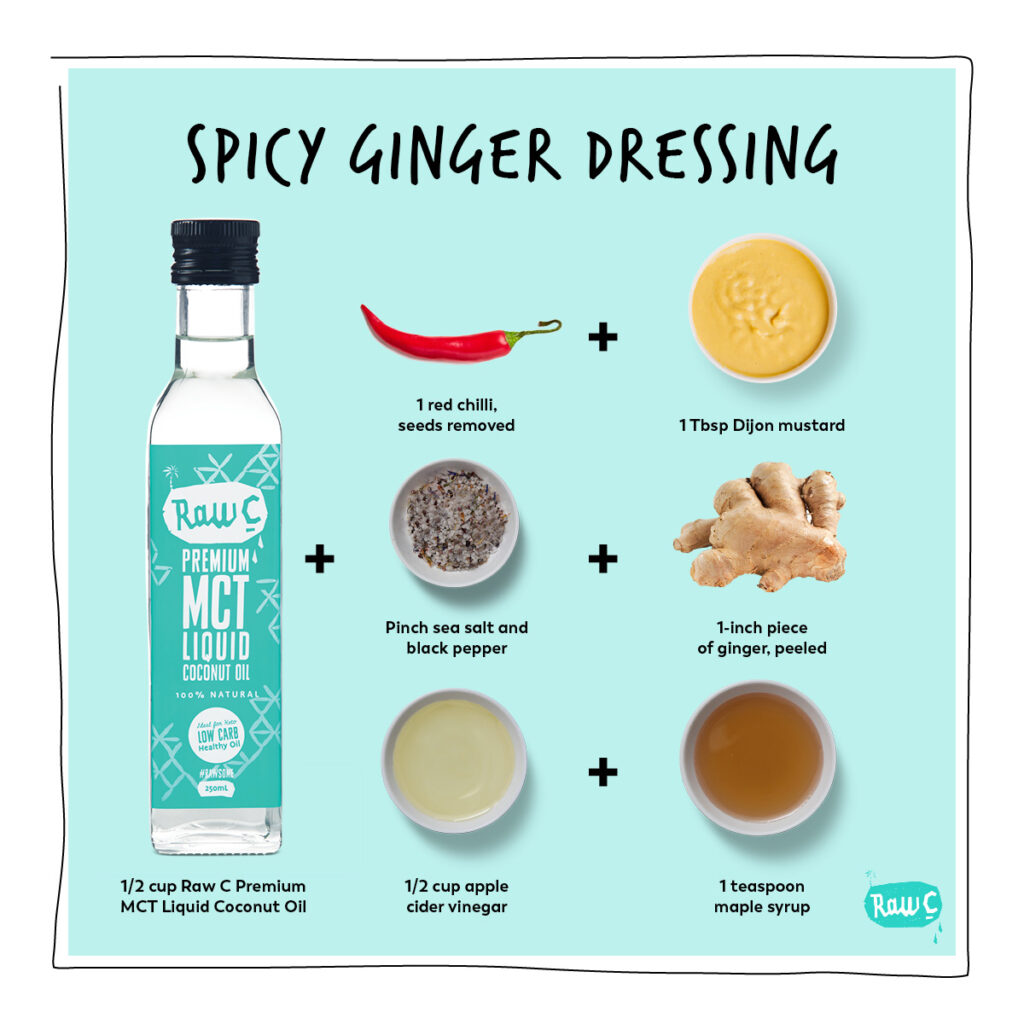What are Medium Chain Triglycerides?
Accredited Practising Dietitian, Nutritionist and Founder of Dietitian Edition dietitianedition.com, Millie Padula, takes a closer look at MCTs!
Medium Chain Triglycerides, or MCTs as you may be familiar with, are a type of fat found in coconut oil, palm oil and certain dairy products. Here at Raw C, we’re of course most concerned with the MCTs found in coconut oil and how they perform in the body from a health perspective.
Before we get into that though, it’s important to understand that MCT oil and coconut oil are different in terms of their make-up. MCT oil is a distilled source of 100% MCT (hence the name), whereas coconut oil is comprised predominantly of MCTs – but not entirely.
We’ve no doubt that all of this fancy fat talk and these crazy acronyms can be a little (or a lot) to get your head around, so without further a-do, let’s jump into what we’ve been waiting for – what makes MCTs so marvellous?
Despite MCTs being a type of saturated fat, the one we typically aim to limit in our diets due to the negative effects they can pose on our heart health, their role in the body more closely represents that of healthier fats.
What this means is that MCTs aren’t completely associated with the same type of health concerns that traditional saturated fats carry alone. Instead, they boast a range of health benefits that make them a wonderful addition to a nutritious balanced diet comprised of whole foods.
The Resume of MCTs!
- MCTs are energy rich and may play a role in balancing blood sugar levels, controlling appetite, increasing satiety and stabilising energy levels.
- Given that MCTs have a shorter chain length in comparison to Long Chain Triglycerides (LCT), they are digested and absorbed quicker and are able to be used as a more readily available energy source. This is beneficial for individuals following a ketogenic diet (a diet that limits carbohydrates) as they rely on fat to be used as their primary source of energy, and they need that energy…STAT!
- While research surrounding the correlation between MCT use and positive health outcomes is still in the early stages, there are promising results for those when included in the diets of those with irritable bowel syndrome or for individuals who have undergone bowel surgery.
- When it comes to MCTs and their effect on heart health and cholesterol, this is still a relatively grey area that needs some more research.
Unlike most oils, MCT oil is not traditionally used for cooking or frying. It does however shine as an ingredient in salad dressings and can be added as a source of fat into smoothies, healthy treats and if you are game enough – your morning cup of Joe!
A note from Millie: Before considering commencing a diet or extreme dietary change, consult with a doctor and dietitian first. MCT consumption should be moderated as part of a healthy balanced diet.



